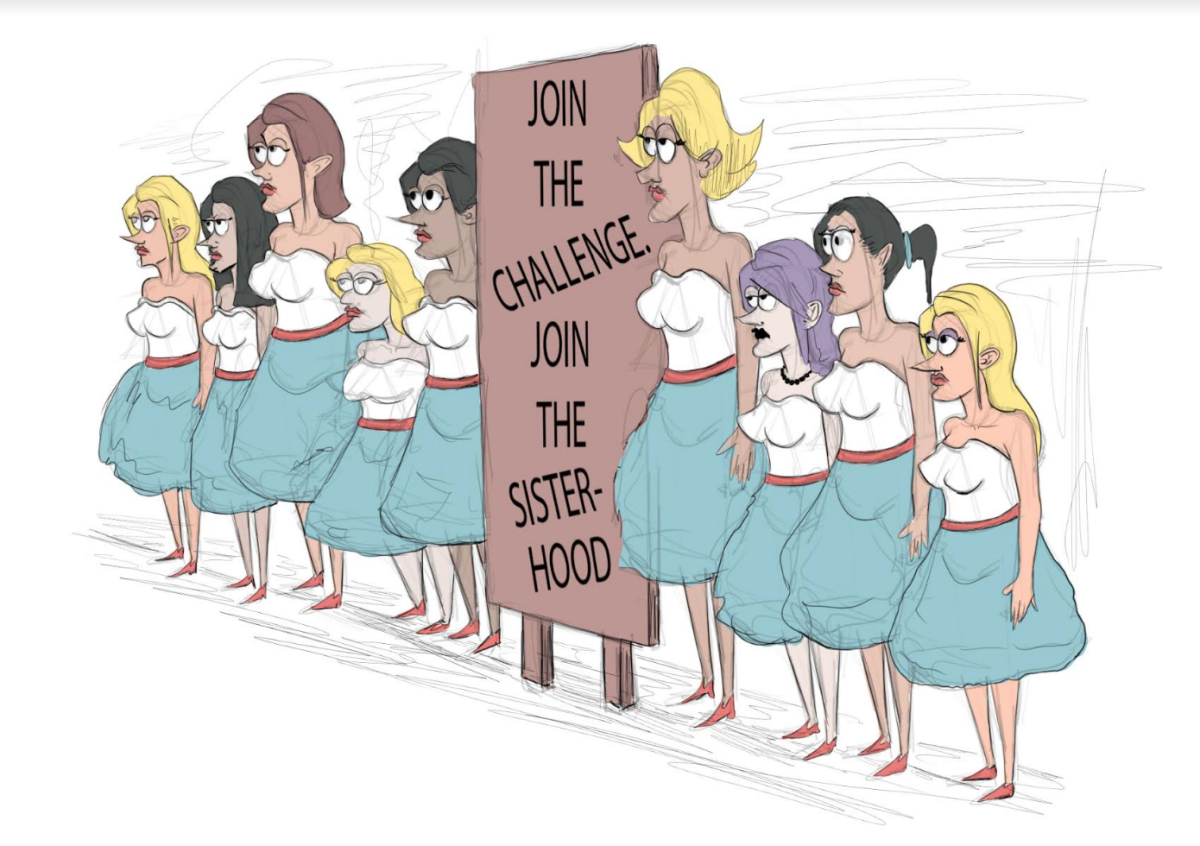Editor’s note: This article is a part of a head-to-head. Read the other article here.
Sororities are cults. You pay for your friends. Sororities force you to conform into something you’re not. These are common ideals believed by non-Greek members who do not understand the benefits and actual effects of Greek life, specifically sorority life at the University.
Recruitment is commonly stereotyped by the outfits sorority members are forced to wear, the chants the women sing and the long hours they spend talking to potential new members and judging them. From a pessimistic standpoint, all of this information is objectively true. However, each of those categories teach life skills to women that are priceless.
The process of recruitment instills confidence in women on both sides of the process. The women who are members of a Panhellenic sorority realize they possess amazing qualities that younger women look up to and want to copy. Potential new members gain a different aspect of this same confidence. They are appreciated during recruitment for their past accomplishments, and feel wanted throughout the recruitment week when being invited back to houses. It forces women on both sides to step out of their comfort zone and truly be themselves.
The conversation during recruitment is hard, especially during the first round known as “ice water.” Sorority women will talk to approximately 50 people during this first round in a span of two days. PNMs will talk to around 20 to 30 women. Ice water, in particular, forces women to gain skills in small talk, reading people, making quick connections and relating to people of different backgrounds and cultures.
The overarching skill that sorority life and recruitment give is networking. The skills gained during recruitment are life-changing. If you don’t feel comfortable putting yourself out there and making connections, then you don’t need to be in a sorority. The underlying principle is that being in a sorority is a choice, if one disagrees with the benefits gained from it, then you can choose not to be in it.
Matching outfits and chanting is a popular topic for jokes and judgement. I relate to this personally because the chapter I am a part of is often made fun of in a viral meme depicting our recruitment chant as the “gates of hell.” However, these aspects of recruitment do not enforce conformity.
Yet, they allow members to express themselves in a specified category. I have never been forced to wear something I did not want to wear. I, as well as other Greek women, were allowed to shop freely to allow our beautiful figures to be accentuated. This is not a form of conformity, but teaching women skills for the future. If we consider enforced dress code “hazing” or “conforming,” would businesses not be enforcing the same negative principles when forcing their employees to follow a dress code?
Being in a sorority is a privilege, bids should not be given to just anyone. This is not unfair, it is a principle of life. In the Greek Life Report of 2016-2017 at the University, sorority women were reported to maintain a higher GPA than women not participating in Greek Life. The GPA of sorority women was an averaged 3.207, while the women not in Greek Life are averaged at 3.04. Retention rates for women at LSU are higher when participating in Greek Life.
The qualities that Panhellenic women possess allow them to be competitive. Service, philanthropy, academic commitment and sisterhood are just a few of the aspects that sorority life offers. Just like honor societies, sororities should be allowed to have standards upon offering membership. Membership is a privilege one receives when going through the process of recruitment. Recruitment is a difficult process, but the end result and the benefits received from it makes it worth it.
Britany Diefenderfer is a 20-year old English literature junior from Thibodaux, Louisiana.
Opinion: Sorority recruitment character-building, bonding experience
August 27, 2018
rush







